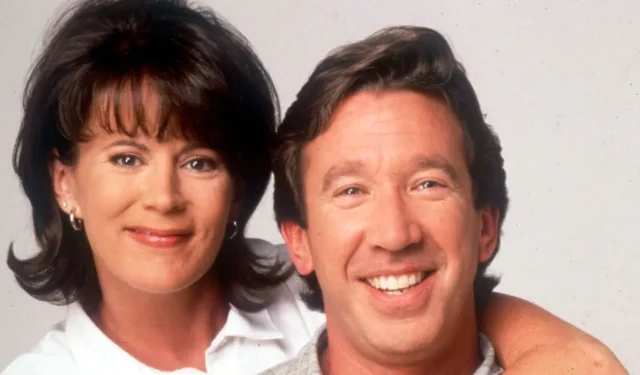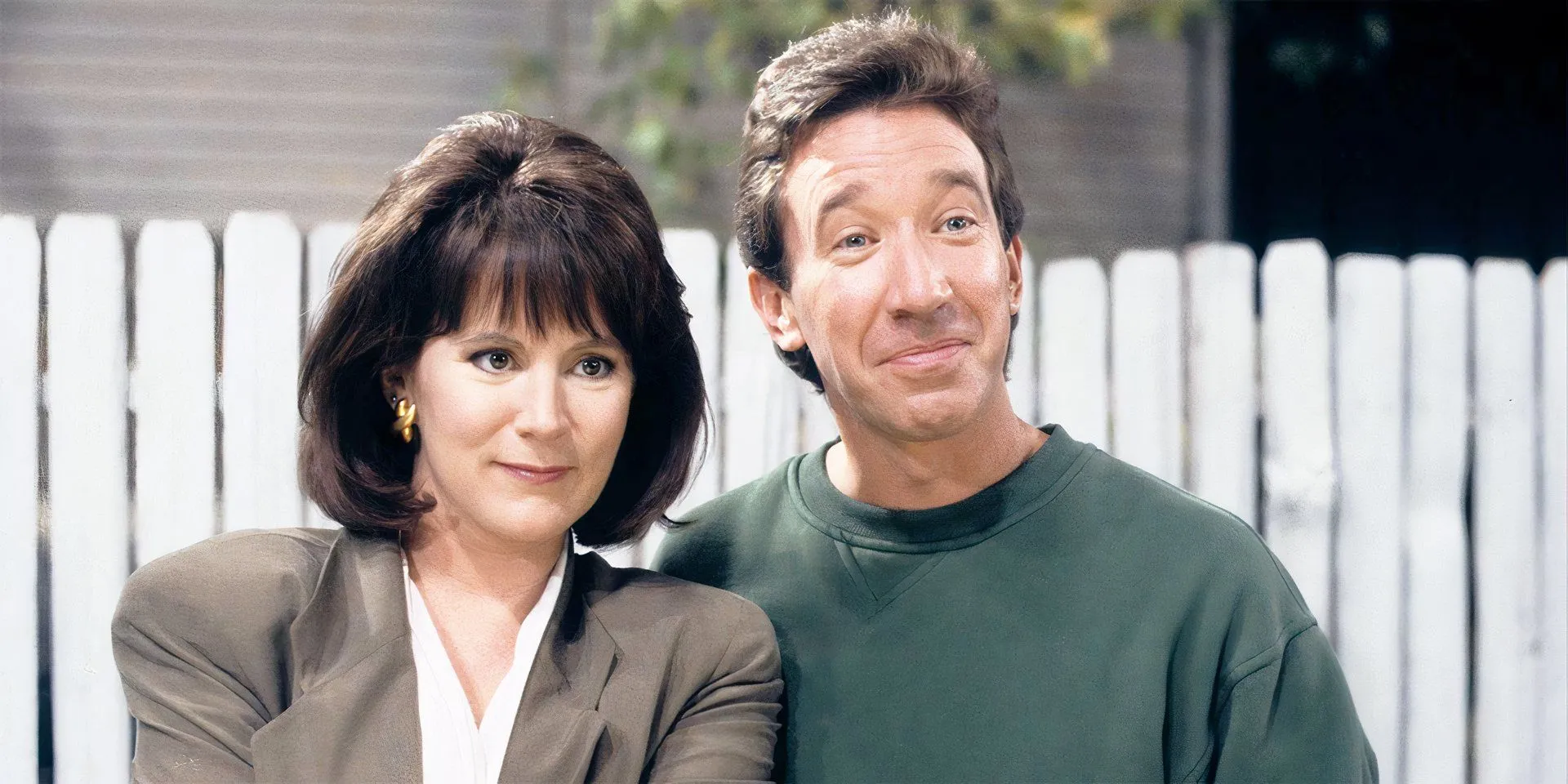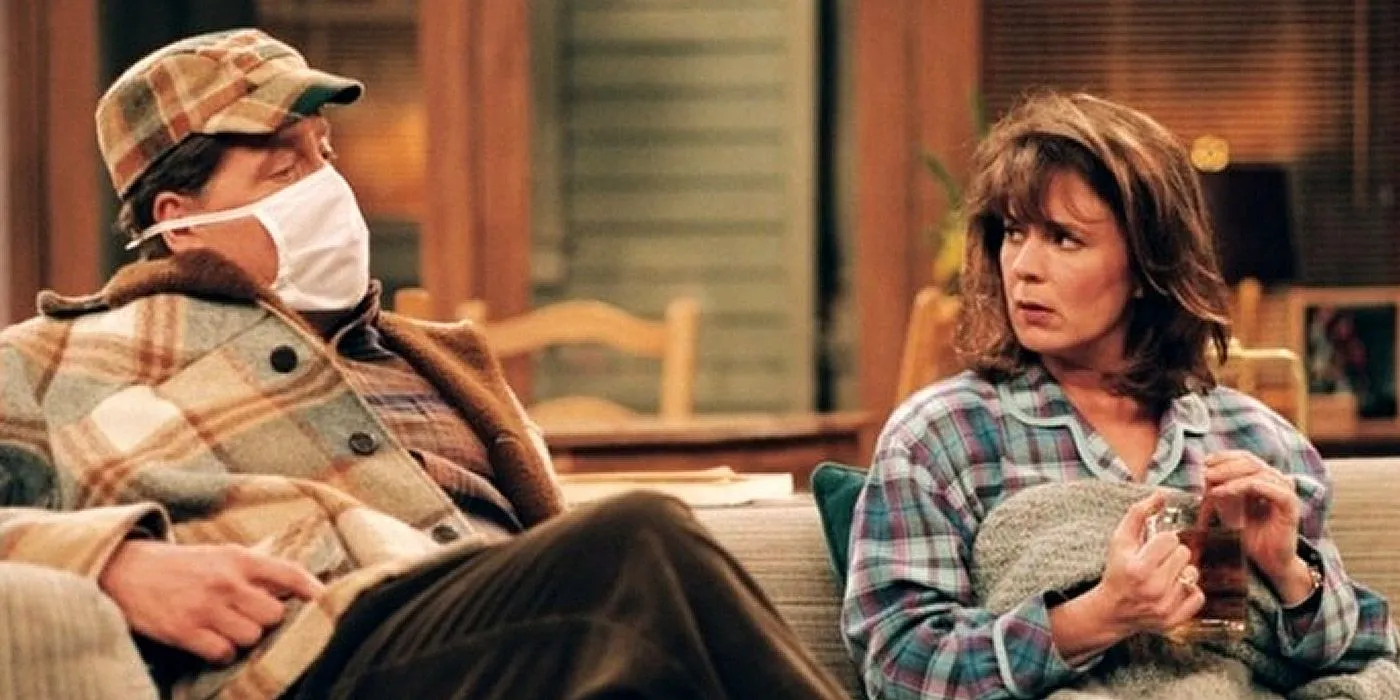
During the 1990s, the beloved sitcom Home Improvement depicted the life of the Taylor family, achieving significant popularity. However, behind the scenes, tensions arose, primarily due to a substantial pay disparity between actress Patricia Richardson, who portrayed Jill, and her co-star Tim Allen, the show’s lead. Over its eight-season run from 1991 to 1999, the series showcased Tim “The Toolman”Taylor (Allen) managing the challenges of hosting his home improvement show, Tool Time, alongside a chaotic family life that resonated with numerous middle-class viewers. It also catapulted Jonathan Taylor Thomas, who played Randy Taylor, to fame among younger audiences.
While JTT attracted many young fans, the powerful dynamic between Tim and Jill Taylor was a significant draw for mature viewers. Jill served as the sensible voice within the Taylor household, balancing her familial responsibilities with her ambitions, including pursuing graduate education. Her character inspired many real-life women to chase their aspirations. Yet, this portrayal clashed with real-life disputes between Richardson and Allen.
Patricia Richardson Stood Firm Against Gender Pay Inequality
TV Executives Abandoned Season 9 Plans Without Jill Taylor

As Home Improvement entered its eighth season, both cast and crew felt the strain, leading to a decline in the show’s quality. When discussions about a ninth season took place, Allen accepted a pay increase, but Richardson could not overlook the drastic wage gap that persisted between them. In response, she proposed an executive producer credit along with equal pay per episode, indicating that she recognized such compensation was unlikely:
I knew that Disney would in no way pay me that much. That was my way to say ‘no’ and was a little bit of a flip-off to Disney. I’d been there all this time, and they never even paid me a third of what Tim was making, and I was working my a** off. I was a big reason why women were watching.
When producers dismissed her request, the prospect of a ninth season crumbled—without Richardson, there was no show. Executive producers Carmen Finestra and Elliot Shoenman acknowledged this challenge:
Some shows would have had the mom die. I don’t remember one discussion where we said, ‘How can we keep this going without Pat?’ It just couldn’t have worked. (Finestra)
Without her, it just didn’t make any sense. (Shoenman)
Richardson’s decision to forgo a potential $25 million payday exemplified her courage, especially in an era when fewer actresses advocated for equal pay. To compound matters, she felt unsupported by Allen, stating:
I was mad at Tim because he was leaving me alone being the only person saying no, which made me feel terrible and like the bad guy, and he was upset with me for leaving.
The series finale aired on May 25, 1999, concluding with the Taylors relocating to Indiana so Jill could explore a new career. Although Richardson did not receive the compensation she deserved, Jill Taylor emerged victorious in her own narrative.
Despite the friction between them, Richardson later reunited with Allen on his sitcom Last Man Standing, portraying neighbor Helen Potts in two episodes.
Richardson Points to Allen’s Politics for the Show’s Diminished Legacy
The Show Lacks the Iconic Status of ’90s Classics

Throughout its airing, Home Improvement consistently ranked among the top shows, even reaching the number one spot at times according to the LA Times. However, over 25 years later, the series has struggled to maintain a lasting legacy. Richardson believes part of this issue lies with Tim Allen’s controversies, particularly his conservative beliefs. She stated:
I think it’s about Tim, and it’s about his politics. Of course, I don’t like his politics.
Further controversies include allegations made by Pamela Anderson in her 2023 memoir, Love, Pamela, suggesting that Allen engaged in inappropriate behavior on set. These factors may contribute to a reluctance among audiences to revisit Home Improvement.
While Richardson may attribute the show’s lack of recognition to Allen’s actions, it’s worth noting that the series, while charming, may not be as memorable as its contemporaries, such as Seinfeld and Friends, both of which significantly shaped television history through their innovative storytelling.
Ongoing Struggles for Equal Pay in Hollywood
Actors Across the Industry Rally Against Pay Inequities
Richardson’s stand against inequitable pay during her tenure on Home Improvement marked a significant moment for women in the entertainment industry, even if it did not receive widespread acclaim at the time. Since then, numerous actors have continued to challenge ongoing salary disparities in Hollywood. A prominent example is Emmy Rossum’s struggle during her time on Shameless.
In 2016, the eighth season of Shameless faced delays when Rossum advocated for pay equal to her co-star, William H. Macy. Despite Macy’s initial star power, Rossum emerged as the show’s true lead after several seasons. She even requested compensation exceeding Macy’s, reflecting on her years of lesser pay. Macy stood in solidarity with Rossum during her advocacy.
The issue of pay equity has also garnered attention from major movie stars, as evidenced by Jennifer Lawrence’s revelations about her salary in American Hustle. Despite her status as an Oscar-winning actress and a lead in the popular Hunger Games franchise, Lawrence discovered that her male co-stars, including Christian Bale, Bradley Cooper, and Jeremy Renner, received higher compensation, particularly when Renner’s role was significantly smaller than hers.
Notable Departures Over Pay Disputes
Neve Campbell’s Recent Actions Highlight Persistent Pay Issues
Instances similar to Patricia Richardson’s departure from Home Improvement over pay differences are not isolated in Hollywood. Neve Campbell, renowned for her role as Sidney Prescott in the Scream franchise, opted not to return for Scream VI, asserting that the compensation offered did not capture her significance to the series. Fortunately, Campbell’s stand has resulted in her being reinstated as the lead for Scream 7.
Additionally, historical pay disputes have resulted in significant exits, including that of Suzanne Somers from Three’s Company. Initially, she sought equal compensation commensurate with her male co-stars’ salaries. However, the show’s response was to minimize her role until her eventual departure from the series.
Moreover, Hawaii Five-O encountered controversy when co-stars Daniel Dae Kim and Grace Park departed the show in 2017, seeking equitable pay relative to aspiring leads Alex O’Loughlin and Scott Caan. Although initially characterized as lead roles, Kim and Park had effectively earned their status and sought compensation reflective of their contributions to the series.

Leave a Reply